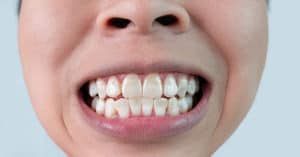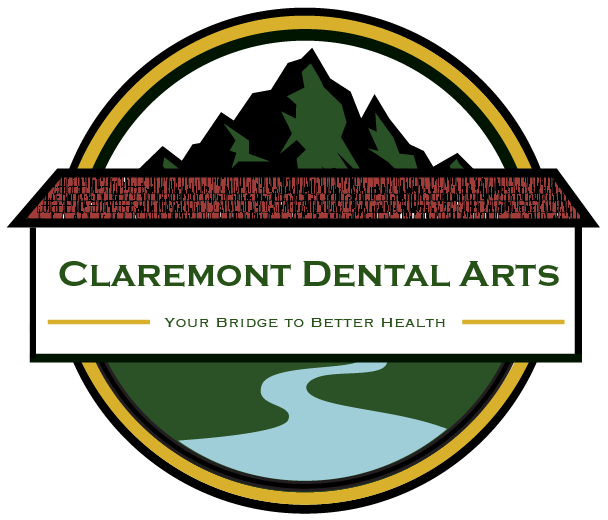
While teeth are ideally a uniform shiny white, white spots on teeth may be both unsightly and unnerving. What causes this kind of discoloration? Is something wrong? What can I do about it? As it turns out, we know what causes white spots on teeth and most of the time the issue is readily treatable.
While you should call your dentist if a white spot or spots persist, most of the time the causes of white spots are basic to understand and easily treated if caught early. Some of the possible causes include:
- Too Much Fluoride, also known as fluorosis, is a common cause of white spots on teeth. It occurs when excess amounts of fluoride are ingested while the teeth are still forming, and is thus most common in children. If left untreated it can lead to permanently misshapen or discolored teeth. Common causes of fluorosis include fluoride in the water or in toothpaste. Your dentist may suggest switching to bottled water or a different tooth care product for a while.
- Diet is another common cause of white spots on teeth, albeit in a few different ways. A diet deficient in calcium may lead to white spots on teeth, as calcium is an essential element in keeping teeth mineralized and healthy. Good dietary sources of calcium include dairy products, nuts and seeds, and leafy greens. A diet which contains too many acidic foods may lead to white spots on teeth as the acids wear away at the protective enamel outer layer. Acidic foods include citrus fruits and related products, tomatoes and tomato based foods, and coffee.
- Bacteria Accumulation is a leading cause of white spots on teeth. A buildup of bacteria as a result of poor diet, a lack of regular brushing and flossing, or tooth demineralization can cause white spots on teeth as the colony of bacteria takes hold. This can lead to long term damage including tooth loss if left untreated.
So now that we know what causes white spots on teeth, what can be done about them? Well, that depends on the cause of your white spots, how far they’ve progressed, and your overall oral health. Possible treatments include:
- Dental Cleanings and Flouride Treatments can sometimes correct white spots on teeth by removing the offending bacteria and remineralizing the affected area. This is generally the solution in mild cases which are caught early.
- Enamel Microabrasion involves removing a thin layer of enamel in the affected area, thereby improving the appearance of the teeth and removing the white spot. This is often combined with a chemical whitening treatment for best effect.
- Dental Veneers can be installed to cover the affected tooth or teeth and restore a uniform color and appearance. Veneers a common cosmetic treatment in which a thin porcelain layer is shaped and colored like the natural tooth and attached permanently to its surface.
While treatment options are readily available, it’s important to remember that prevention is better than cure. If you’re pregnant or have a small child, talk to your dentist and doctor about the best ways to maintain their oral health. If you’re a smoker, it’s time to kick the habit. Adopting a good diet and regular brushing and flossing are your best bet for preventing most oral health issues, including white spots on teeth. Make sure you’re doing your part and you’ll help your smile last a lifetime!




